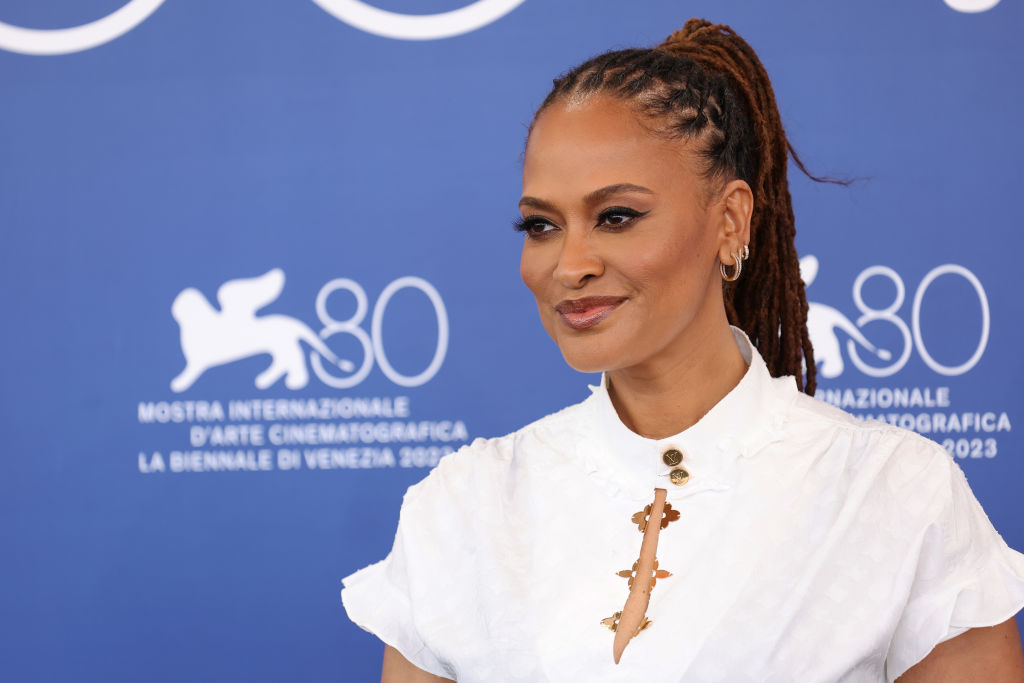We bring news that matters to your inbox, to help you stay informed and entertained.
Terms of Use and Privacy Policy Agreement
WELCOME TO THE FAMILY! Please check your email for confirmation from us.
As the multi-hyphenate visionary becomes the first Black female U.S. director in the history of the Venice Film Festival, we’re looking back at some of the creator’s biggest milestones in the industry.
Ava DuVernay is a record-setting boundary-breaker. The filmmaker and industry titan behind acclaimed projects such as “When They See Us” and “Selma,” made history at the Venice Film Festival this summer. The latest staggering accomplishment is truly one of many for the creator, and we’re diving deep into some of the biggest “firsts” of her varied and impressive career thus far.
This week, DuVernay became the first female Black U.S. director to have a feature in the Venice Film Festival’s main competition. Her highly anticipated film “Origin,” based on Isabel Wilkerson’s best-selling book “Caste: The Origins of Our Discontents,” will premiere this week at the festival.
In a press conference at the festival, DuVernay opened up about this milestone, per The Hollywood Reporter. “For Black filmmakers, we’re told that people who love films in other parts of the world don’t care about our stories and don’t care about our films,” she said according to the outlet.
“This is something that we are often told — you cannot play international film festivals, no one will come, people will not come to your press conference, people will not come to the P&I screenings, they will not be interested in selling tickets, you may not even get into this festival, so don’t apply. I can’t tell you how many times I’ve been told not to apply to Venice, you won’t get in. It won’t happen. And this year, it happened.”
One of DuVernay’s first boundary-breaking moments in her career came over a decade ago. Her second feature, “Middle of Nowhere,” premiered at the Sundance Film Festival in 2012. The project was huge for the filmmaker, earning her the Best Director award. DuVernay made history at the time as the first African-American woman to take home the coveted award.
DuVernay’s critically acclaimed film “Selma,” also made history when it was released in 2014. The historical drama film based on the Selma-to-Montgomery marches of 1965 was nominated for Best Picture at the Academy Awards, making DuVernay the first Black woman director nominated for the Best Picture Oscar.
Additionally, “Selma” earned DuVernay a Golden Globe nomination for Best Director, making her the first Black woman nominated in that prestigious category.
Back in 2018, DuVernay also helmed Disney’s adaptation of the beloved classic “A Wrinkle in Time.” The star-studded adaptation featured performances from Oprah Winfrey, Reese Witherspoon, and Mindy Kaling, with a leading performance from Storm Reid.
DuVernay became the first Black woman to direct a film with a budget of over $100 million, a major milestone for the industry. She said in an interview with Revolt at the time, “People say those things like it’s a source of pride. I know it’s a source of pride for some people, but for me it’s like for the industry, aren’t y’all embarrassed that it’s 2018? They’ll say it when I walk on stage and it’s like, ‘You might want to keep that on the low that it’s 2018 and this is just now happening.”
With “A Wrinkle in Time,” DuVernay went on to become the first Black female director to have a film gross $100 million at the box office, as theGrio previously reported.
With other acclaimed projects like her original drama series “Queen Sugar,” her Netflix series on the Central Park 5 “When They See Us,” her documentary “13th” and more, DuVernay continued to carve out her lane in the industry, with her name becoming synonymous with authentic, powerful and nuanced storytelling.
With “Origin” on the horizon, DuVernay shows no signs of stopping anytime soon. As fellow filmmaker Barry Jenkins wrote in an essay for Time Magazine’s Time 100, DuVernay is “opening doors, and that’s courageous.”
TheGrio is FREE on your TV via Apple TV, Amazon Fire, Roku and Android TV. Also, please download theGrio mobile apps today!

